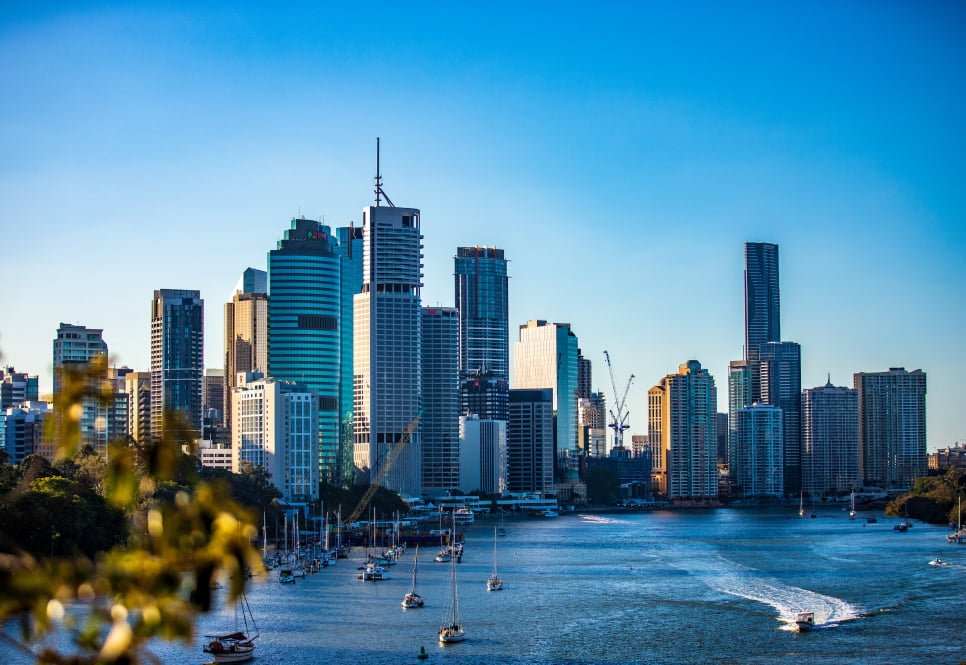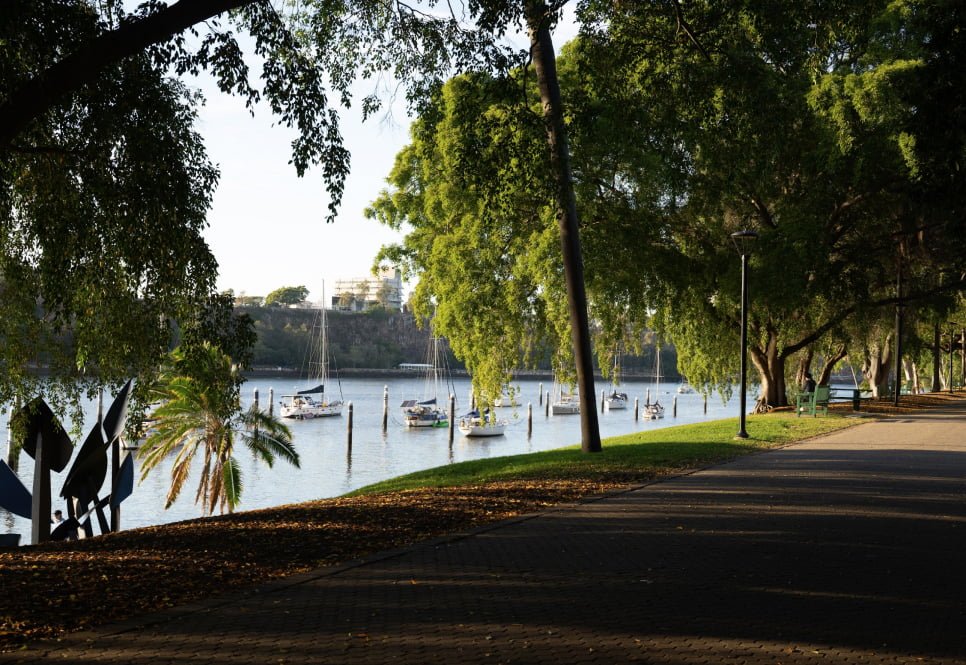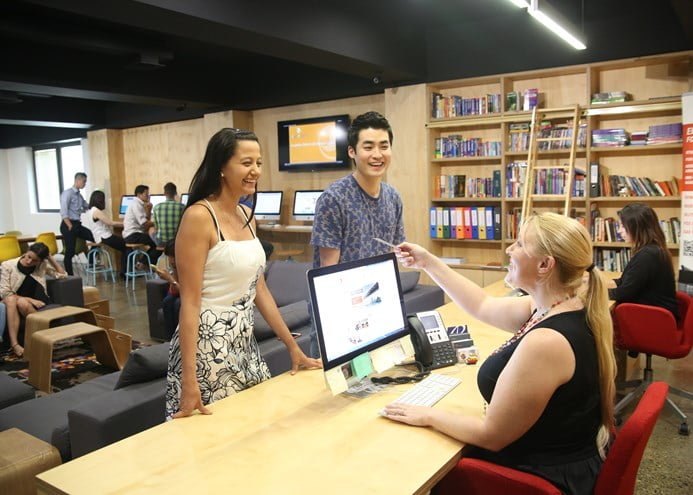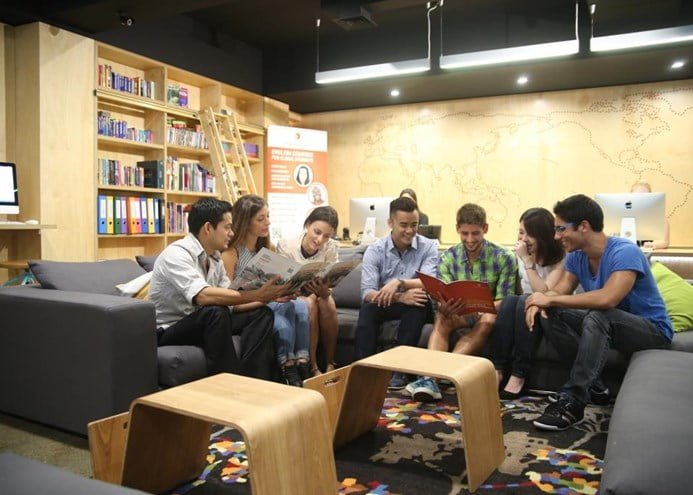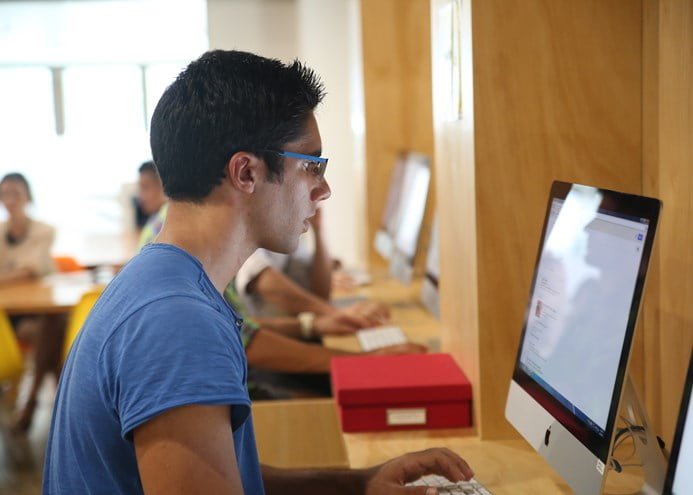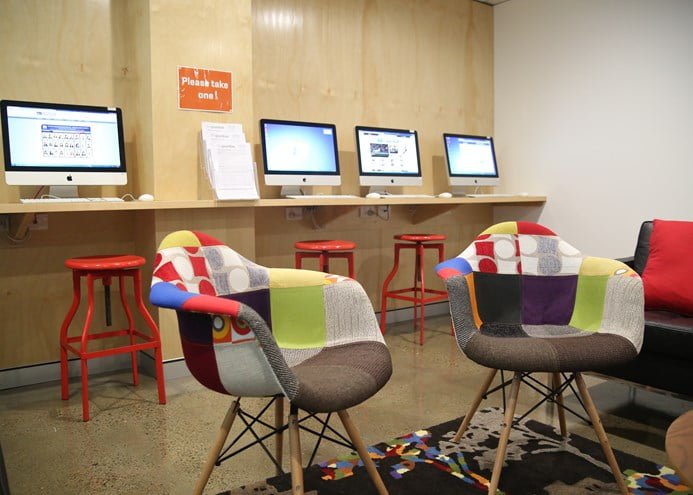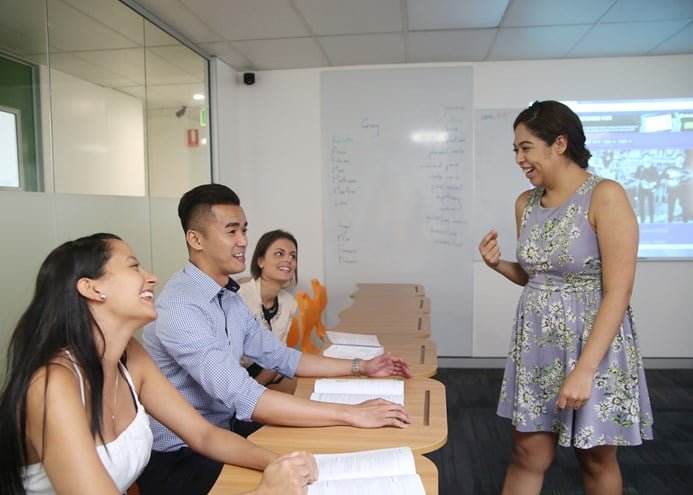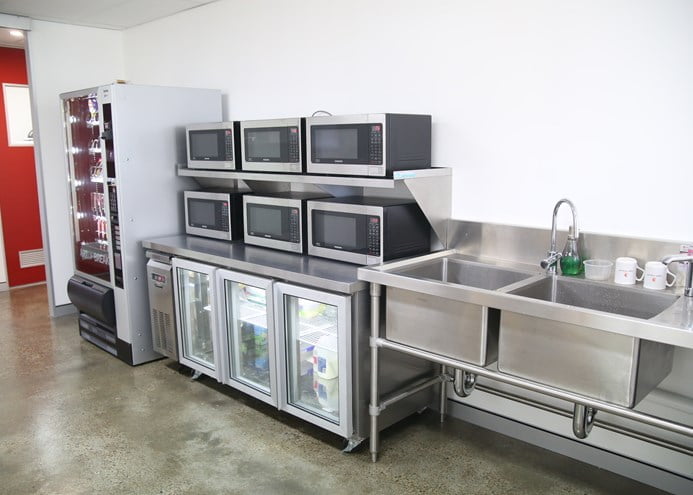Study in Brisbane
Australia’s third largest city, Brisbane is a vibrant subtropical centre with year-round sunshine. It has a relaxed atmosphere and an outdoor lifestyle.
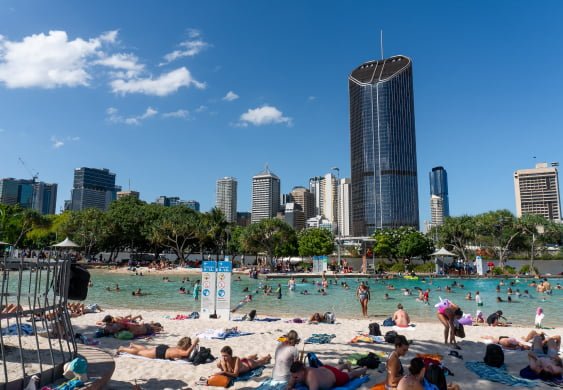
Brisbane lifestyle and culture
The Australian Pacific College and English Unlimited campus is located in the heart of Brisbane CBD on Albert Street, within walking distance of the major tourist attractions, and public transport.
Brisbane, the capital of Queensland – known as the “Sunshine State” –is a dynamic, cosmopolitan, safe and friendly city, once voted Australia’s most livable city. It is surrounded by some of the most popular sightseeing places in Australia: the Gold & Sunshine Coasts, beautiful sand islands, zoos and theme parks.
The city is also renowned as the education centre of Queensland as it is home to nine universities. Living costs are comparatively low and public transport is affordable and accessible. The amazing weather, excellent quality of life on offer and the friendly people make Brisbane the perfect Australian city in which to live and study.
Photo Gallery
Brisbane climate
Brisbane has a comfortable subtropical climate with warm or hot weather nearly all year round. The average maximum daily temperature throughout the year is around 25°C with an average of 300 days of sunshine per year.
In summer (December - February), maximum temperatures are around 30°C, and there are often thunderstorms and heavy rain. Winter (June - August) is generally mild, sunny and dry, with average temperatures around 17°C. Mornings can be quite cold, down to 6°C.
Spring (September - November) and Autumn (March - May) have average temperatures of around 15-25°C. Days are warm and sunny, the evenings are pleasant and the nights are cool.
Brisbane Campus
Located in the heart of Brisbane CBD our Albert Street campus is ideally situated for students to enjoy all the advantages of being near Queen Street Mall, Queensland’s premier shopping and entertainment precinct. Free events and shows frequently occur throughout the year right at the college’s front door!
Our campus is also conveniently located near bus terminals and train stations and within easy walking distance of the many major tourist attractions.
The campus has state-of-the-art facilities including light-filled classrooms equipped with multi-media functionality and comfortable student furnishings, a generous student kitchen and many quiet study zones.
Our Barista Skills classes take place in our fantastic student kitchen and help to prepare our global students for the world of international work in Brisbane and Australia.
Phone
1300 830 272Hours
Operating hours: Operating hours: 8:30 AM - 9.30 PM (Monday - Friday) Student Care: 8:00 AM - 5:00 PM (Mondays - Fridays) 8.30 AM - 6:00 PM (Tuesdays, Wed & Thursdays)Public Transport Options
- Bus to Elizabeth St
Transport options
Brisbane’s integrated transport system and shared bike and pedestrian trails mean you don’t need a car to get around. The network reaches Brisbane’s best galleries, restaurants, bars and live-music venues, most of which are concentrated in the inner neighbourhoods of central Brisbane (the CBD), South Bank, West End, Fortitude Valley and Newstead.
Public transport is the cheapest way to get around. Taxis are also available, but they are expensive in comparison with other forms of public transport.
The cheapest way to travel by public transport is to buy an Go Card. You can add credit to these cards and then you don’t have to worry about not having enough cash to catch public transport. You can add extra credit online or through a retail outlet. Just remember to always tap on and tap off or you will be charged extra.
Visit the Go Cards website.
Brisbane buses reach all corners of the city, running every five to 30 minutes from around 5.15am till about 11pm. NightLink services run all night Fridays and Saturdays.
Major interchange stops include the Queen Street and King George Square Bus Stations in the CBD and the Cultural Center stop in South Bank.
Information courtesy of Lonely Planet.
Brisbane’s ferries are highlights in themselves, serving up Manhattan-esque cityscapes and providing a relaxing way to hop between riverside neighbourhoods.
BCityCat catamarans are the largest and fastest of the fleet, serving 18 stops along the Brisbane River. CityHopper ferries are slower and serve less stops, but they’re free to ride, so if you’re on a tight budget, hop on and enjoy the views between South Bank and New Farm. CityHoppers sail every 30 minutes from about 6am to around midnight.
Information courtesy of Lonely Planet.
All six of Brisbane’s suburban train lines connect the CBD stations of Central and Roma Street to Fortitude Valley. Three of the lines (Ferny Grove and Beenleigh, Shorncliffe and Cleveland, Airport and Gold Coast) also stop at South Brisbane and South Bank stations, making them handy if heading out in "The Valley" after sightseeing in South Bank.
Trains run from around 4.30am, with the last train on most lines leaving Central between 11pm and 1am.
Information courtesy Lonely Planet.
To get to and from the airport the cheapest and fastest option is to catch the AirTrain.
Alternatively we offer an airport transfer service. Our friendly driver will be waiting for you, holding a sign with your name, at the meeting point. You will be safely taken from the airport to your homestay or other accommodation - you will be well cared for from the moment you arrive in Australia! If you are interested in booking an airport transfer please contact us for more information.
Student accommodation
A variety of high standard student accommodation is available to suit different budgets and needs. Students can opt to live in university accommodation or with an Australian family. Shared accommodation with other students is also common and popular.
We can provide students with help in finding accommodation and understanding lease and tenancy conditions. Temporary accommodation can be arranged before you leave home allowing you time on arrival to consider where and how you would like to be accommodated in the longer term. Student notice boards and newspapers often advertise rooms, apartments and houses for rent.
for more information visit our Student Accommodation page.
Student jobs
Brisbane offers many part-time and casual employment opportunities for international students.
If you want to work while you study, you need to understand your rights and responsibilities to ensure you protect yourself and comply with your visa requirements.
The number of hours you can work on a Student Visa can be subject to change. You can check the latest rules on the Australian Government's Immigration website for Student Visas (subclass 500) and other types of visas.
The flexible hours and large number of opportunities in these industries make these ideal for students:
- Retail - including supermarkets, department stores, boutiques
- Hospitality - cafes, bars, restaurants, delivery
- Farming and fruit-picking - seasonal work
- Services – childcare, aged care and cleaning
- Administration and clerical work
- Tutoring
Find out more on the Study Australia website.
In Australia, the best way to look for part-time or casual work are through job listing sites such as:
Find out more about finding part-time or casual work whilst you study on the Study Australia website.
Both Australian Pacific College and our sister school English Unlimited have a Job Club.
We care about your experience in Australia and understand that finding a job in another country can be scary and difficult, so we want to help you.
Job Club aims to assist students seeking part-time or casual work by helping with your Curriculum Vitae (CV), helpful information and tips for job applications.
Find out more about Job Club.

